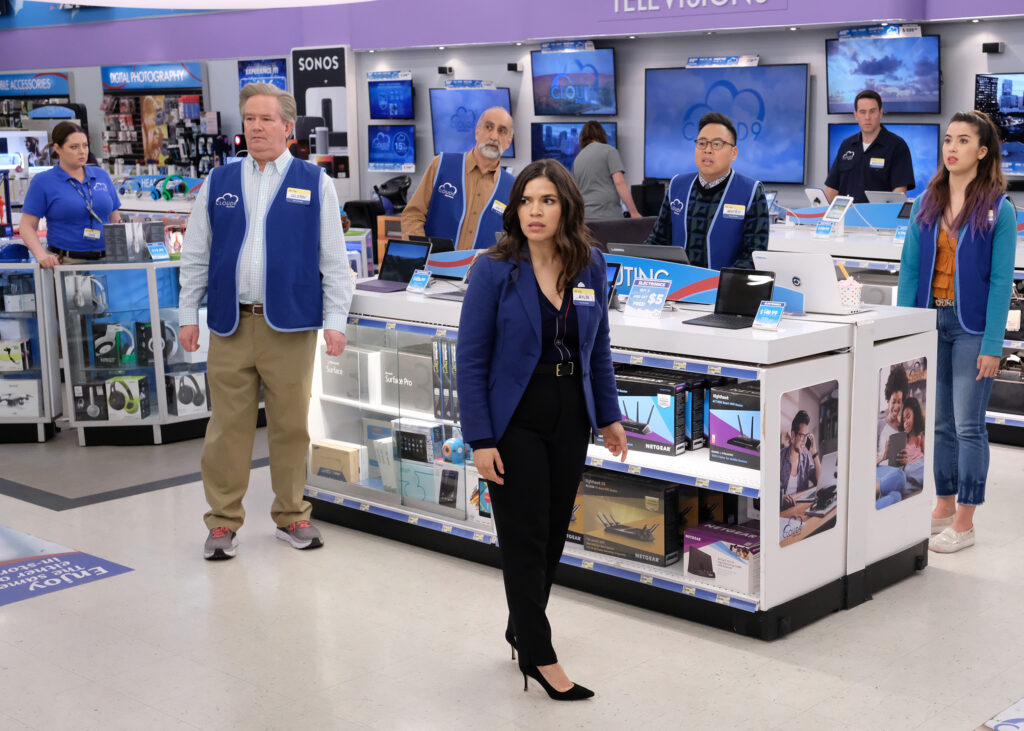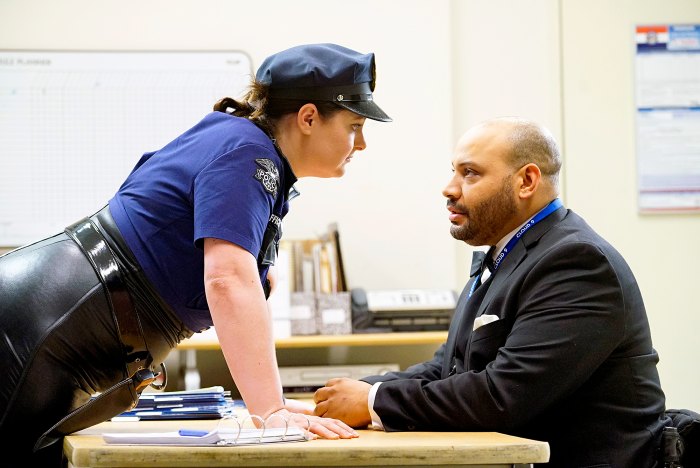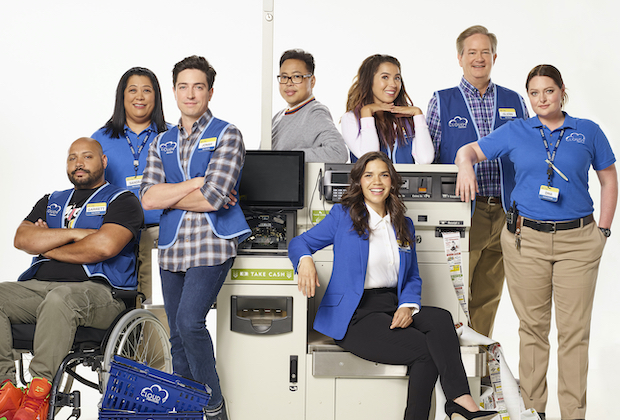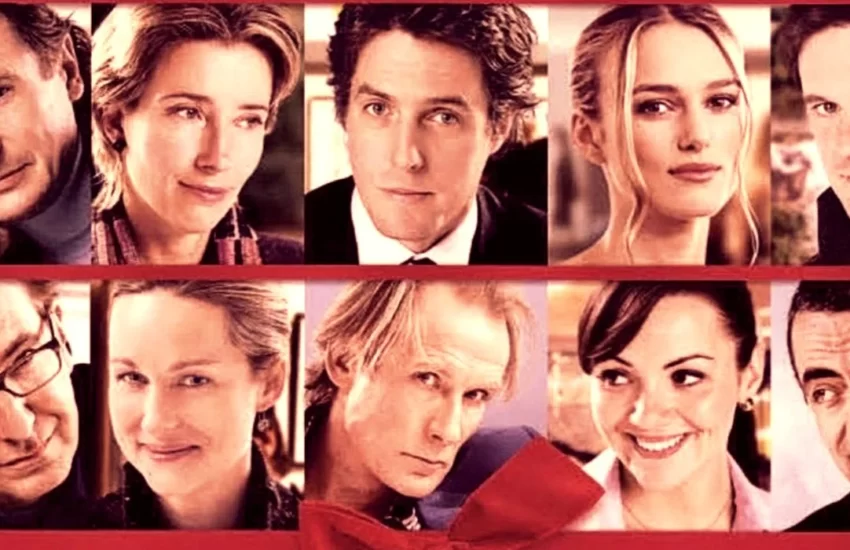MediocriTV :: Part One
In these multi-platform times, it is often easy to find yourself wasting hours of your life investing in a convoluted drama that only seems to try and undermine your inner mettle of dramatic standards with each episode.
What with all of the lapses in narrative logic in some of these shows either via problems with the overall premise, the cynical deployment of course-correcting plot-holes and red-herrings, a lack of interesting or sympathetic characters who are often mislabelled as “real” or the severe tonal whiplash that threatens to derail your interest in the outcome completely, you would have done well to tell your close friend or family member that despite their rabid recommendations of said audio-visual skein you are simply just going to watch live news coverage for a solid two weeks to fill your quota of bemused disappointment instead. And though we are tentatively-almost-even-almost-actually-don’t-want-to-jinx-it-thank-you-please starting to get hopeful about emerging out of this infernal “pandemiconium”, it ought to be said that the COVID crisis has encouraged some of us to indulge in audio-visual escapism more fervently and passionately than ever before.
Whilst it is most certainly okay to have mixed feelings about something everyone else is falling over themselves to implore you to like, retreating into something intensely formulaic and safe is sometimes necessary for our mental health too, something that works as a palette cleanser to help gently scrub at the more tensely critical folds in your brain and helps smooth things over enough for the next bumpy road one may hit in the future. As far as my personal taste goes, I am more predisposed to indulge in something silly and comedic to pass whatever time is needed before getting into something dramatically meatier, and though I am more prone to re-watching episodes of Community and/or Parks & Recreation in particular to the point where I normally greet friends with quotes from those shows rather than actual salutations, every so often something will pop up and simultaneously pique my interest enough to stay the course throughout its entire run and yet leave such an inconsequential impression that I have no compulsion whatsoever to revisit it ever again.
The most premier example of something from last year that I can remember was Channel 4’s Maxxx, a scatological satire taking aim at the world of pop music starring The Handmaid’s Tale’s O-T Fagbenle in uncannily-good Craig David cosplay, which despite also featuring Christopher Meloni as an over-sexed record label executive and Nina Wadia as a wonderfully bitchy deity, I have no intention of ever going back to, but would still recommend if it passed you by the first time around. As for what 2021 has so far delivered, it is American sitcom/wannabe satire Superstore, currently on its sixth and final season in real time over on NBC in the States but also enjoying quite the resurgence of interest in the UK with its prior years having been thrown onto Netflix in the new year, thereby earning itself a comfortable residence inside its Top 10 Most Watched list on the streaming service despite being previously shown on ITV2.
I guess we all must miss going shopping like normal people far more than we would care to admit, eh?
MediocriTV, #1 – SUPERSTORE (NBC/ITV2/Netflix/Spitzer Holding Company/The District)
** :: SPOILER WARNING FOR SEASONS 1-5 :: **

An ensemble comedy led by actress/producer/director America Ferrera in her first mainstream TV project since Ugly Betty, Superstore tells the myriad stories of various character types as they navigate through the dehumanisation that comes with working for an international retail conglomerate, more specifically a warehouse store belonging to the fictional Cloud 9 business franchise based in St. Louis, Missouri. Being set in a Midwestern US city affords the show a decent cross-section of players from a multitude of backgrounds, with most of the situations stemming from the continuous cultural clashes made amongst them as well as their having to cooperate with one another to solve some of the more negligible problems bestowed on to them from the upper echelons of the company ladder, or “corporate” as they often referred to. The main story dynamic is essentially plucky/caustic-David versus moneygrubbing-Goliath cranked up to millennial amounts of maximalism, which is as comedically fertile and commercially friendly a sitcom premise as you are likely to find, but does it capitalize (sorry) on this set-up as well as it should?
Like most network shows from the US trying to find the perfect balance for all demographics to enjoy its wares, Superstore attempts to cover its bases with edgy humour and broadly recognizable archetypes to make its jokes land soundly with just enough pathos sewn into the storylines to win the audience over and keep them invested. Effectively towing the line between cynicism and sentimentality is always a tricky endeavour, and whilst there are a handful of shows that prove it can be achieved (see my aforementioned favourites for examples), Superstore is one of many programs that ends up falling shy of greatness in its not delving into more subversive avenues for its comedic inspiration, relying a little too heavily on cheap slapstick and insult humour when it could offer something darker and funnier if its satirical intent had a sharper focus than its committed adherence to interpersonal character drama of romantic complications and workplace rivalries that could have easily been transplanted from any other show.

This is made more frustrating when it actually does flirt with these concepts and proceeds to lean towards something more transgressive than most previous workplace-set comedies, evincing sympathetic attitudes towards workers’ rights, immigration, racial discrimination and healthcare amongst other hot-buttons topics especially integral to the American customer service sector only to undermine these arguments with a cynical plot twist powerful enough to restore the miserable status quo each time they are introduced. One such example of this is when rival conglomerate Zephra buys up the failing Cloud 9 assets, which serves to swiftly stamp out the cast’s elation in the finale as well as all the union talk that provided much of the narrative engine of the fourth season. Papering over all of this are innumerable instances of more typical sitcom tropes, including secret romances bolstered by plenty of love-hate chemistry, generation gap tomfoolery that extends to issues regarding gender and sexual orientation and no less than three pregnancy storylines, neither of which end up affecting the main premise too much with the resulting children themselves barely mentioned thereafter. Admittedly, a somewhat modern twist on a formula will sometimes emerge, such as how the specific reason for the initial secrecy concerning floor-worker Mateo’s relationship with area manager Jeff is really about company policies involving relationships with superiors rather than their being gay, which in turn lends their coupling a sweet sense of everyday normality, but these bright-spots are not as frequent as they should be.
Thankfully, even the laziest of set-ups and payoffs offered here still score some solid laughs, mostly due to the hard work of one of the more charismatic and diverse ensemble casts to feature on a mainstream sitcom in some time. Standouts in this regard who deserve better work in the future include Nichole Sakura (née Bloom) channelling some cute Lisa Kudrow-style energy as vapid-or-not new-adult Cheyenne, Colton Dunn dishing grumpy allure as sneakers-obsessed announcer Garrett and Lauren Ash as militantly organised assistant manager Dina, who is swiftly becoming one of my favourite performers after her work in both this and in She-Ra & The Princesses Of Power as one its best characters (edit: any fans of that show can find out for themselves exactly who she plays, because it kind of blew my mind when I found out). In fact, the weakest links in the cast tend to be the main Sam-and-Diane-style coupling of Amy and Jonah; despite Ferrera and Ben Feldman’s evident charms and chemistry with one another, too often their dismissive dialogue aimed towards their work and colleagues rings with too much mean-spiritedness to keep us invested in their will-they-won’t-oh-they-have-then frisson. And yes Spice Girls fans, that is the same guy from Spiceworld The Movie, or rather The Kids In The Hall’s Mark McKinney, as inept store manager Glenn, and his choice to play the character as naïvely-misinformed-but-well-meaning rather than regressively toxic is probably the best choice any actor makes in this entire show.
All of which many end up counting for nought though, because if you are going to enjoy anything about Superstore, you are first and foremost going to have to get over its perfectly pitched production values, as for better and worse the art department on the show outdo themselves throughout in capturing how bright, busy, oppressive and soulless these forts of capitalism really are. Visually, the lighting of the store helps illuminate every square inch with an over-saturated blandness, each aisle of products both becoming and bedevilled with bounteous primary-coloured convenience as customers and staff idly stroll through with little care or motivation. The sound design is even worse though, as cheaply synthesized covers of popular songs tinnily play through the store’s speakers to provide a depressing sound bed for the rattling shopping carts, beeping cash registers and various other capitalist white noises commonly found in hypermarkets. And then there is the perpetual product placement, which pervades every scene with the kind of ruthless copiousness that a comedy set in a big-buy store affords, especially amidst the many cutaway-gag scene transitions featuring customers and staff fooling around with various supermarket ephemera between scenes; what little respite there is from these scenes mostly comes from sojourns to the workmanlike genericness of the staff break room or the dark corners of the monolithic stock rooms. For anyone who has worked in customer service for a high-street franchise, it is quite uncanny how well Superstore renders the whole experience, to the point that anyone with an especially low tolerance for the whole sector will immediately be turned off by the whole thing.
However, it appears that this very facet of the show’s existence goes some way to explaining how Superstore has ironically found a growth spurt in popularity over here in the UK despite news of its impending cancellation after its current season in its homestead, with one main cast member having already taken themselves off its shelves two episodes in (it’s common knowledge who it is, but I’m keeping schtum here out of respect for anyone who is still unaware). Given that the pandemic has seen fit to drastically alter if not completely strip away the customer service experience for both shoppers and workers alike for nearly an entire year now, it would make sense that a show like this would provide a weird semblance of solace for those whose routines revolved around these congregations of consumerism; some may find that fact a little horrifying and/or incredibly sad, but that’s the world we live in right now. And whilst it may overplay its mean-spiritedness a little too often, it does not hit as many satirical targets as it should do and adheres to the tidy geometry of established sitcom tropes more than is required, Superstore does manage to get by on enough charm from its cast and what quirky subversiveness it is able to harness to earn a half-recommendation as an undemanding slice of entertaining salve for your wary brain, especially for those who are missing that specific feeling of late-stage-capitalist malaise a little more than they should.
And at least it is not as outright miserable as Sky UK’s Trollied, thank goodness!
So yeah, if you’re stuck for some undemanding entertainment, give it a watch; until next time, take care… xxxo


